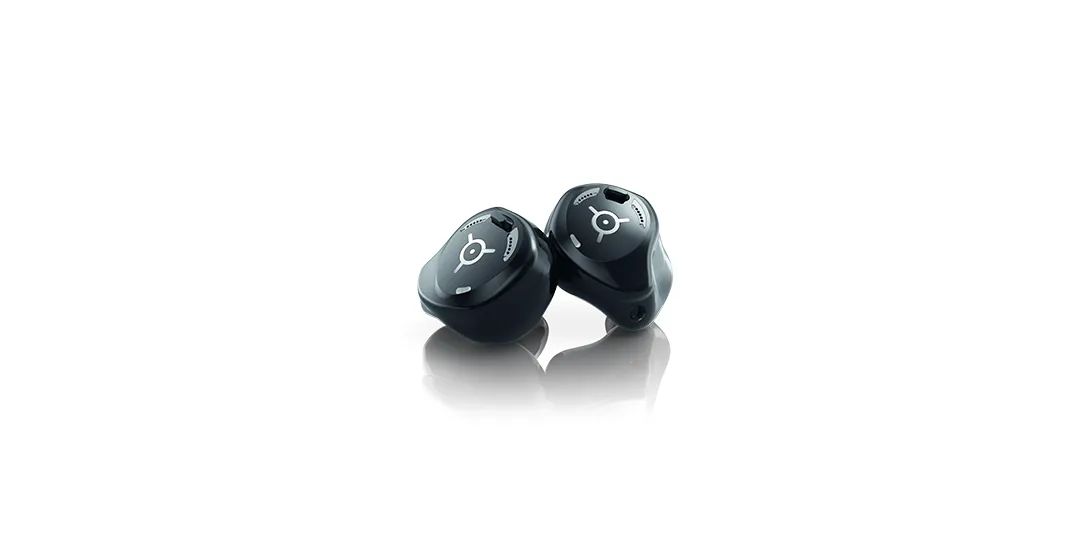Living with labyrinthitis: From dizziness to diagnosis

Living with labyrinthitis: From dizziness to diagnosis
4 min.
Publication Date: September 24, 2025
When it comes to conditions like labyrinthitis—something many people have never heard of until they experience it—personal stories can make all the difference. They help us recognize symptoms, feel less alone, and understand what recovery can really look like.
This article will take you through a typical labyrinthitis experience, starting with symptoms of unexplained dizziness, imbalance, and hearing changes. It’s a story that highlights both the challenges and the quiet progress that can come with recovery.
The particulars of this account are fictionalized but accurately depict the real-life experiences of people who have navigated labyrinthitis and come out the other side.
Note: Our Hearing Care Professionals (HCPs) are here to support your ear health and provide personalized guidance. However, if you're concerned about ear infections or other medical issues affecting your hearing, always consult with your healthcare provider as your first priority.
It started with a strange kind of dizziness
At first, it felt like you were just overtired. Maybe you’d had a busy few weeks, and the occasional lightheadedness seemed easy to explain—lack of sleep, too much screen time, perhaps a touch of stress. But one morning, you stood up from the couch and the whole room tilted. You sat back down and expected it to pass, but it didn’t.
Over the next week, you kept feeling off. Your balance was unreliable, your left ear felt plugged, and your hearing on that side seemed a little dull. You avoided bending over or turning your head too quickly because it made the dizziness worse. At one point, you even had to leave a grocery store because you felt so disoriented.
Eventually, you couldn’t escape the fact that something wasn’t right. You booked an appointment with your doctor, explained the vertigo, ear pressure, and nausea, and got a referral to a hearing and balance specialist (note: not Connect Hearing). It was a relief to be taken seriously—though you still didn’t know exactly what you were dealing with.
Getting a diagnosis
Your symptoms had eased slightly by the time you met with the hearing and balance specialist your doctor referred you to, but the unpredictability was still there. You could go half a day feeling fine, then suddenly get hit with a wave of dizziness or that familiar ear pressure. It was hard to explain, and even harder to measure. That made the testing process feel both necessary and validating.
You went through a hearing test and answered questions about your symptoms and medical history. Eventually, your specialist explained that you were likely dealing with labyrinthitis, an inflammation of the inner ear that can affect both balance and hearing. It made sense, but you still felt unsure because you’d never heard of it before.
At the same time, though, you were relieved. Just having a name for what you were going through made it feel less mysterious and less like something you were imagining. Your specialist explained that labyrinthitis often follows viral infections, which lined up with the lingering cold you’d had a few weeks earlier. That connection gave you confidence you were on the right track.
Tips, lessons, and a little hindsight
Once you had a diagnosis, recovery was a little slower than expected. Some days were manageable, but others felt like a full reset. There wasn’t a magic fix, and you had to learn how to support your body while it healed.
Rest helped a lot in the early days. You also learned to stay hydrated, avoid screens as much as possible, and move carefully when symptoms flared up. Over time, you started doing gentle vestibular exercises recommended by your specialist—small things like focusing your eyes on a fixed point while turning your head or practicing balance on uneven surfaces. They felt silly at first, but they worked. You also:
Rested early and often; pushing through usually made things worse
Drank lots of water, especially if dizziness triggered nausea
Avoided bright lights when symptoms flared
Talked about your experience with friends, family, and your healthcare provider
Looking back, you initially tried to downplay what was happening, partly because you didn’t want to seem dramatic and partly because you just didn’t understand what labyrinthitis was. You would now like to see more people talking openly about conditions like this. It’s invisible, but it affects every part of your day.
Most importantly, you learned that getting a proper diagnosis changed everything: it gave you a plan, a name for your balance disorder experience, and reassurance that you weren’t imagining it.
How Connect Hearing can support your recovery
This experience is one many people can relate to—an invisible, confusing condition that shows up unexpectedly and affects nearly every part of your daily life. Labyrinthitis can be unsettling, but with time, support, and the right information, recovery is possible.
If you’re experiencing symptoms like dizziness, vertigo, or unexplained changes in your hearing, we strongly recommend that you check in with your healthcare provider. Early diagnosis and simple strategies—like rest, hydration, and balance therapy—can make a real difference.
Connect Hearing can help with a hearing test to determine whether your inner ear has been affected. You can book a free hearing test either before you’re referred or to speed up the process of being referred to a hearing and balance specialist. In the meantime, learn more about labyrinthitis through our online resources.



